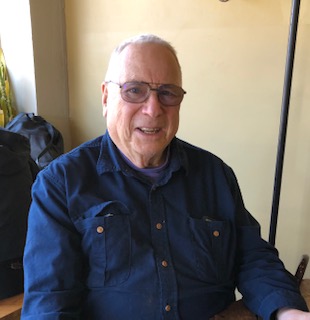Opinion: What Do Voters Want?

Photo: Shutterstock

One of the enduring dilemmas of democracies is that those who want voters to have a greater voice in politics often do not like that voice when they hear it. In Amherst that dilemma manifests itself in several ways. Most significant at the moment is the issue of charter reform. Two groups of voters appear heavily invested in this issue. One group, representing the monied, landed, and institutional interests in town, has crafted a charter that allows it to consolidate power and influence, and has no interest in any changes that threaten their influence. The other group, found mostly in the pages of The Indy, represents voters who remember the democratic and occasionally oppositional Representative Town Meeting which gave voice to 240 Amherst voters who chose to become part of Amherst’s government. This group – of which I am a member – seeks substantial changes to the charter to give greater voice to voters and to provide checks and balances to the concentration of power currently ratified in that charter.
Somewhere in the middle are Amherst voters who remember “representative government” and “checks and balances” from their high school civics classes but who think of town government in terms like better roads, lower taxes and high property values. Checks and balances seem pretty remote compared to waste disposal and water rates. Right now, candidates for the Town Council are taking out their nomination papers. Some incumbents are running again and so far, too few new names will appear on the ballot in November. As they have in the past two cycles, voters who complain about roads, taxes and property values may vote for the people who have brought them poor roads, high taxes and a zoning bylaw compromised by overlays. Why is that?
Some of the reasons are endemic to American – and indeed world – history. Our founders, trying to create one nation out of thirteen autonomous states, did not think that ordinary Americans ought to have a voice in that momentous issue. Over the decades, as America urbanized and industrialized, political bosses consolidated power through patronage, favors, and various other kinds of “bread and circuses”. Voters became habituated to not looking closely at the workings of local politics; they have other lives, families, jobs, studies, enthusiasms, hopes and fears. Local politics is rarely near the top of this list. Hence the state of American politics, quite apart from the MAGA infestation.
But some of the reasons are particular to Amherst. Declining population, high real estate prices, and prioritizing housing for students over families is dramatically changing the population and character of our town. Not long ago we had four elementary schools; next year we will have two. Our downtown is populated by students, who may register to vote because elections are during term-time but who understandably take little interest in local politics. Mr. Density and Mr. Infill are striding through downtown, and in spite of having a Business Improvement District (BID), our retail sector is seriously, perhaps fatally, depleted. This badly affects our communal as well as our commercial life. We are not only housing students downtown, we are turning over our civic spaces to them as well.
Is this what Amherst voters want? Possibly so, since many who study and work in Amherst have felt compelled to find homes in neighboring communities, shifting the demography towards a wealthier entrepreneurial, professional and academic population. Low voter turnout for local elections thus represents a skewed sample of Amherst’s residents. Whether that turnout reflects the concerns of the larger Amherst population is hard to ascertain.
It is understandable that Amherst voters may be more concerned with the delivery of services and the costs of those services than with the structure of their governance. But it is dangerous when they become complacent or uninterested in the character of that governance, because without an alert and involved electorate to provide disagreement and challenge to those in power good government becomes the victim of bad judgment and ill-considered decision. We have seen that over the past six years. Preventing power from becoming entrenched is the firmest way to achieve better roads, lower taxes and a more livable town. That is what the American experiment in democracy begun in 1776 is still trying to demonstrate, and the jury is still out. Given the tepid response to the once-in-ten-years opportunity to amend the Town Charter, both among voters and in the committee appointed to recommend changes to the Town Council, I wonder if the jury is still out in Amherst? What do voters want?
Michael Greenebaum was Principal of Mark’s Meadow School from 1970 to 1991, and from 1974 taught Organization Studies in the Higher Education Center at the UMass School of Education. He served in Town Meeting from 1992, was on the first Charter Commission in 1993, and served on several town committees including the Town Commercial Relations Committee and the Long Range Planning Committee.

We need a true system of checks and balances that had been provided under the Town Meeting/Select Board system. With a council now, we need a mayor now.